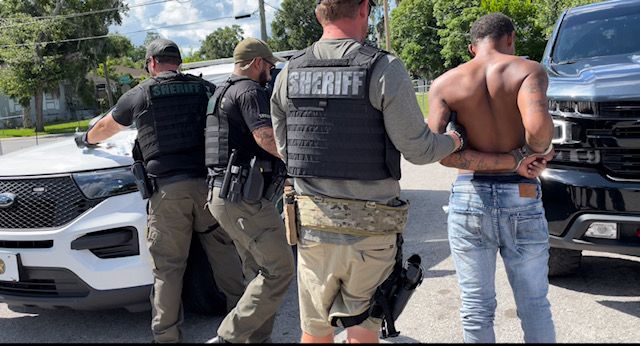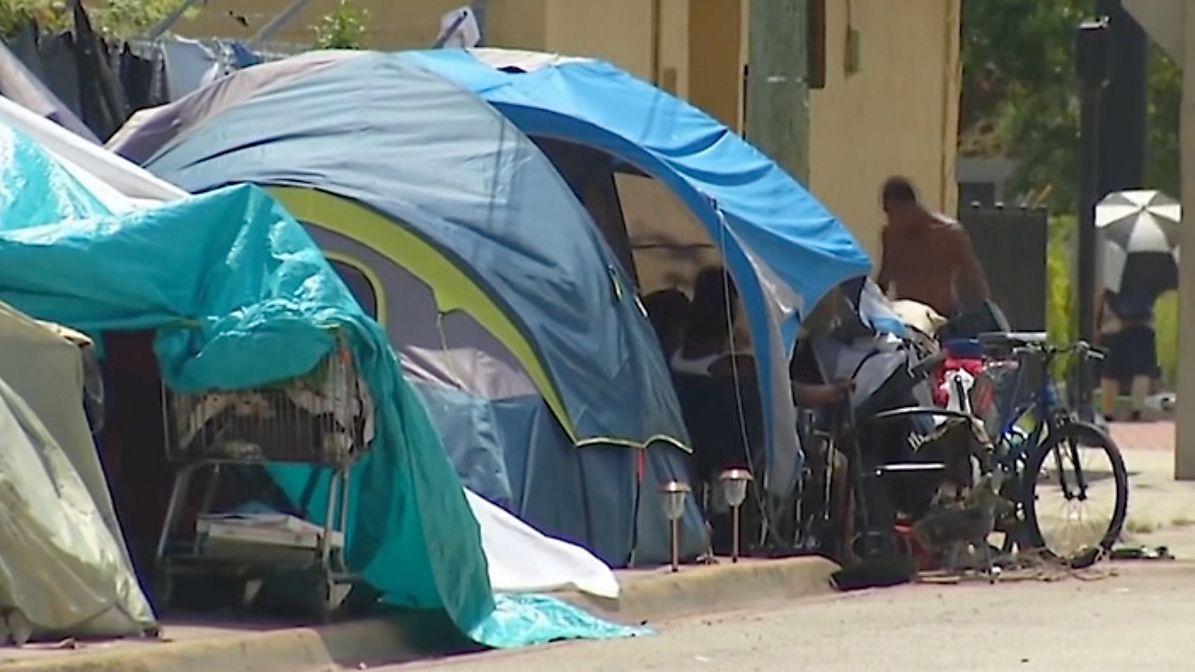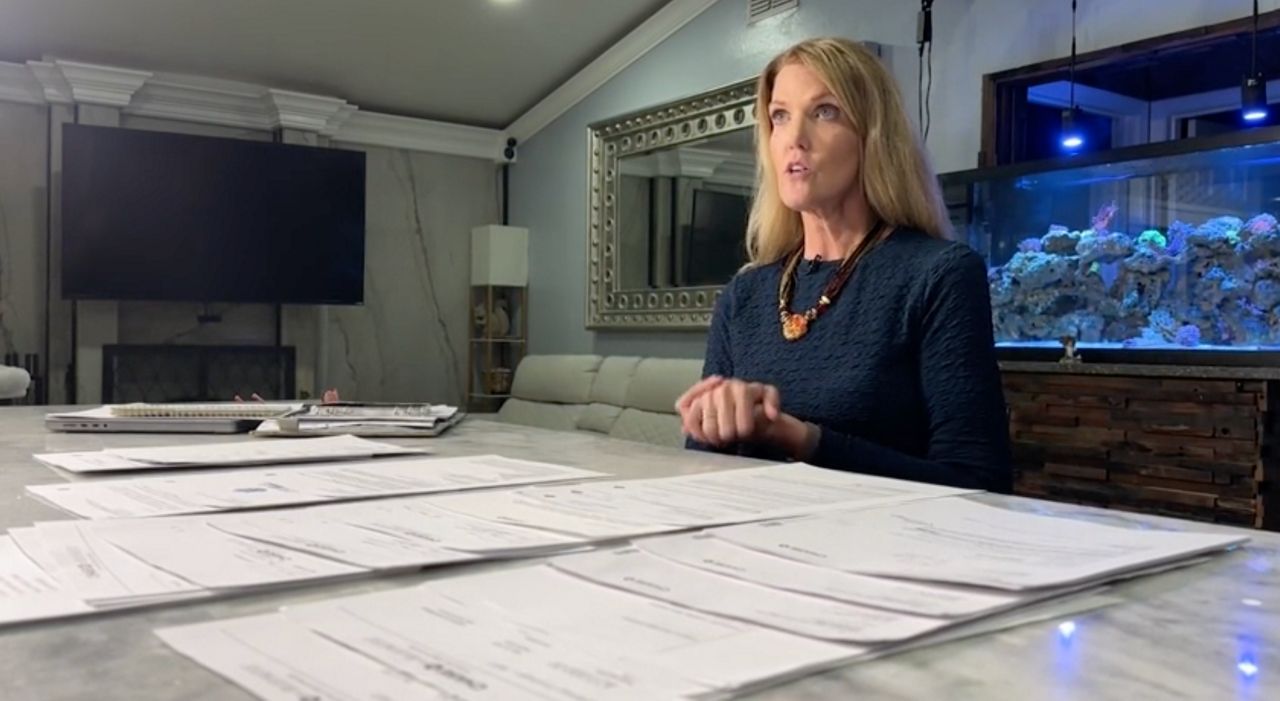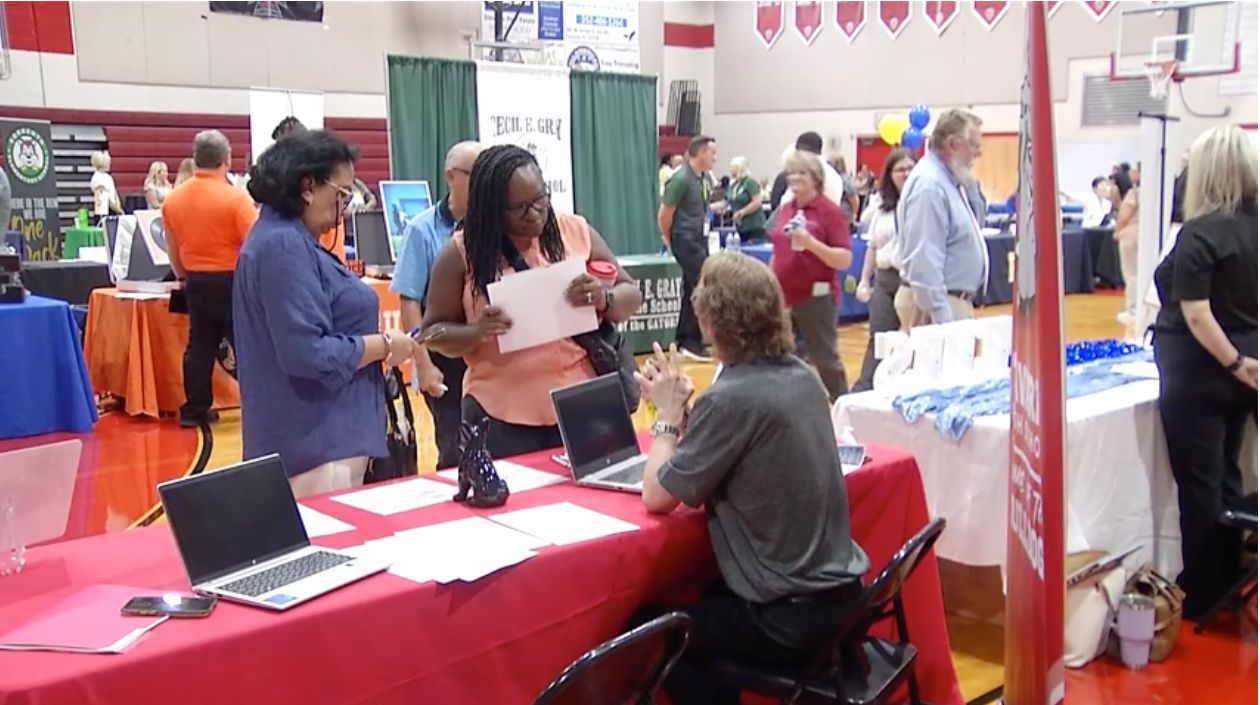VOLUSIA COUNTY, Fla. – On June 1, 2022, deputies and officers in Volusia County were trailing a suspect accused of selling illegal drugs. This is an all too familiar darkness looming in many neighborhoods here in Central Florida –dealers accused of peddling potentially deadly drugs to those who have succumbed to addiction.
These special operations in Volusia county are ramping up at the same time Gov. Ron DeSantis is signing a new bill into law, enhancing penalties for the sale and distribution of opioids in Florida. Additionally, the new state budget shows new funds for drug overdose surveillance and prevention strategies.
“Today we are going to be doing a warrant round up in mostly in the city of DeLand area," Detective Billy Leven said.
Detective Billy Leven joined the Volusia County Sheriff’s Office about 10 years ago. He is in charge of the suspect round up for Operation Friendly Way, a four-month long investigation with a goal of getting accused drug dealers and users off Volusia County streets.
“Targeted basically street level narcotics dealers in the DeLand area, specifically the Friendly Way and other open-air drug markets due to narcotics complaints from citizens,” Detective Leven said.
The theory is simple – if you reduce drug activity and dealers – you reduce the number of overdose deaths, which are up 57% in Central Florida from Jan. 2020 to Sept. 2021. That’s according to Project Opioid and the Centers for Disease Control.
The biggest drug responsible for those overdoses is Fentanyl.
“We’ve had Fentanyl pop up in different types of Cocaine for what dealers are saying is crack…when we are testing it, it’s coming back with some fentanyl in it," Leven said.
At the Friendly Way Market, deputies and officers encounter a suspect wanted by authorities for having illegal drugs and trying to sell them in DeLand, our cameras capturing his arrest.
These round-ups average nearly 20 arrests per operation. The sheriff’s office says they average anywhere from 75-100 arrest warrant round-ups and narcotics operations a year.
Andrae Bailey is also on the front lines of the war on opioids. He is the CEO and Founder of Project Opioid.
“These resources have to be used to impact those who are struggling…we are not going to be able to just arrest our way out of this crisis we’ve got to get help for people who have drug issues and mental health issues," Bailey said.
While he believes arresting drug dealers is one way to help, he believes the best solution is to attack the root of the problem.
“Law enforcement has been pushed to become the frontline of a crisis that really they shouldn’t be, this should be about behavioral health leaders and those that work in nonprofits and other parts of the community getting help to people before they overdose," Bailey said.
While special operations centered on getting drug dealers off the street is one plan of attack, Sheriff Chitwood would like to see funding go towards drug treatment for young people in a new assessment center. Early this year the county council voted to spend more than $5 million in federal relief funds on that Center.
The goal is for this to be a safe haven of sorts for teens and young adults who need help the most.
“Some of these kids they do have mental illness issues that are brought in from their narcotics usage that lead to criminality and a host of other problems," Sheriff Chitwood said.
Agents arrested more than a dozen suspects on drug charges during Operation Friendly Way. We did reach out to Attorney General Ashley Moody’s office regarding the State Opioid task force and why it is no longer in existence.
Her spokesperson said quote “The Task Force presented its final report to the Gov. and Legislature, providing recommendations to combat the opioid crisis. Fortunately, many of these recommendations are being implemented in HB95 from this past legislative session. “
That will increase the minimum sentence for trafficking fentanyl. It also allows prosecutors to charge dealers with first degree felony murder if their product causes a deadly overdose.








